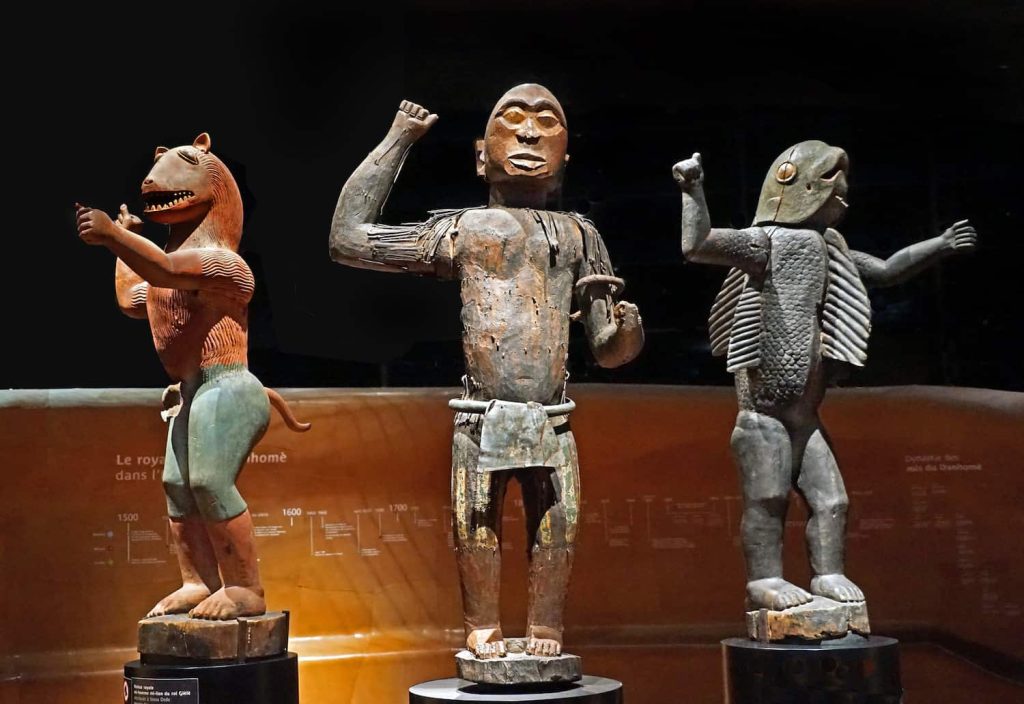Benin Secures Victory in Effort to Halt Auction of Royal Dahomey Artifacts
Artifacts taken to France 130 years ago are now seen as symbols of the powerful Dahomey Kingdom, which spanned what is now Benin and Togo.
In a significant victory for Benin’s cultural heritage, the government successfully intervened to prevent the sale of valuable items belonging to King Behanzin of Dahomey, which were set to be auctioned in Paris. These artifacts, taken from Dahomey after its defeat by French forces in 1894, are now regarded as crucial symbols of the kingdom’s legacy.
Among the items slated for auction was a wooden staff with the hand of King Behanzin holding the liver of a defeated enemy. This and other royal items were looted from Dahomey after the kingdom’s defeat in 1894. King Behanzin, who had ruled Dahomey since 1889, was exiled to France following his defeat, and some of his most prized possessions were seized by colonial authorities and transported to France.
Benin’s President Patrice Talon played a key role in urging auction organizers not to sell the valuable artifacts, ultimately leading to the halt of the sale. This intervention is part of Benin’s broader effort to recover cultural artifacts looted during the colonial era, a movement gaining momentum across Africa as countries seek the return of stolen heritage.
The Dahomey Kingdom, established in 1620, was one of the most powerful and influential kingdoms in West Africa until its annexation by France in 1894. King Behanzin’s reign ended in defeat during the Franco-Dahomean War, which saw the kingdom fall to French control. After the defeat, several royal treasures, including the staff, were removed from Dahomey and transported to France as part of war spoils. After his exile, Behanzin lived the rest of his life in Martinique and Algeria, where he died in 1906. His ashes were later returned to Benin and interred in the former capital, Abomey.
The cancellation of the auction is seen as a significant moment in Benin’s ongoing efforts to reclaim its lost heritage. This action comes after years of advocacy for the return of looted cultural artifacts; President Talon has previously called on France and other former colonial powers to return cultural treasures taken from African countries.
While the immediate removal of these artifacts from the auction is a triumph, it remains uncertain whether Benin will continue its efforts to secure the permanent return of these and other cultural items. The country’s efforts are part of a broader African movement to reclaim cultural identity and history lost during the colonial period.
This victory goes beyond just the return of stolen objects; it is a statement about the importance of cultural preservation and the recognition of Africa’s rich history. For the people of Benin, these artifacts represent more than just relics—they are powerful symbols of their past and their identity as a nation. As discussions around the return of cultural heritage continue, Benin’s bold action stands as a beacon of hope for other African nations seeking to recover their lost treasures.












